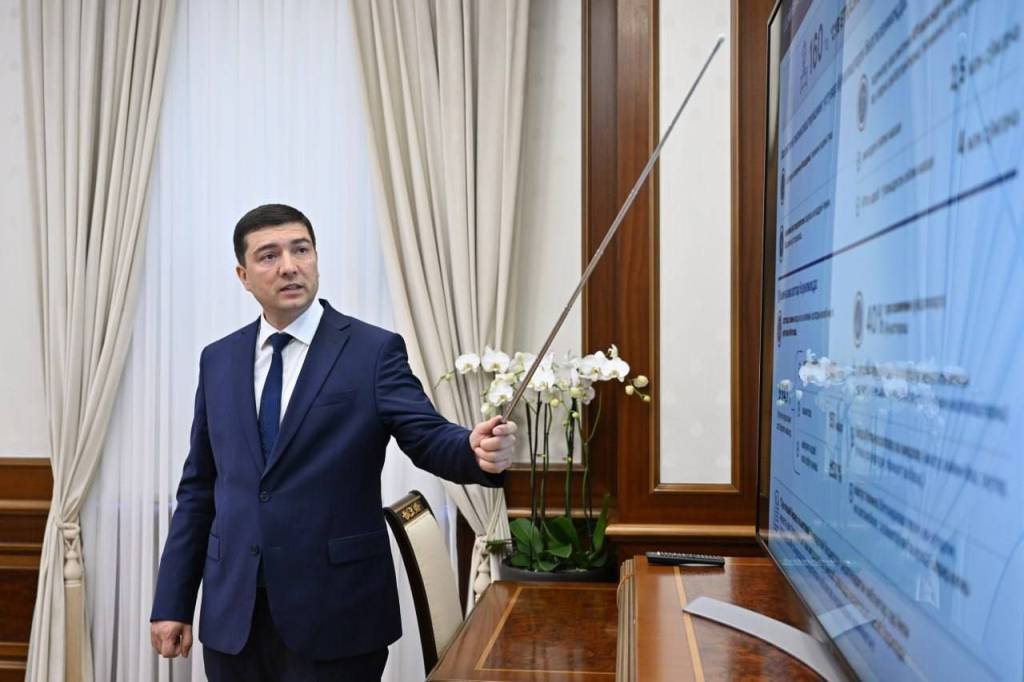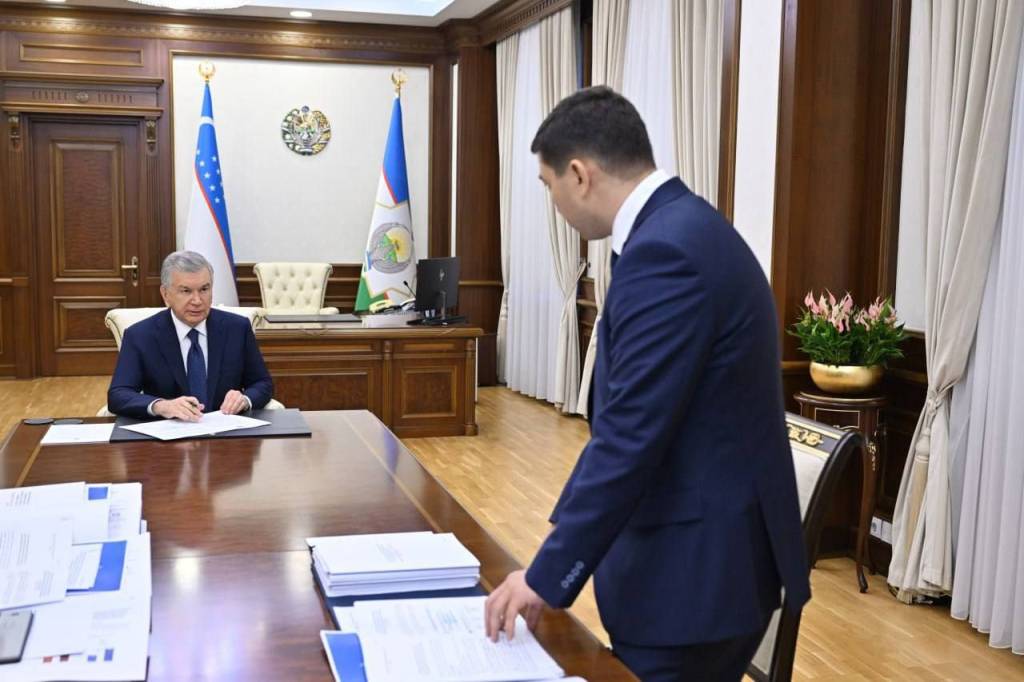Proposals for improving the water resources management system reviewed
On October 13, President Shavkat Mirziyoyev reviewed a presentation on the digitalization of the water management sector, the improvement of water resource management at the local level, and measures to increase the sector’s attractiveness to private investment.
Currently, Uzbekistan has more than 50,000 kilometers of irrigation networks, 1,600 pumping stations, and over 10,000 hydraulic structures. In recent years, systemic efforts have been undertaken to reform water management, modernize irrigation infrastructure, and improve water-use efficiency. At the same time, challenges persist at the lower levels of the system, necessitating a comprehensive approach to address service efficiency, settlement transparency, and organizational financial sustainability.
During the presentation, measures to advance digitalization processes and enhance management mechanisms in the sector were discussed.
Through the “Suv Hisobi” information platform, the volume of water used will be accurately calculated and electronically communicated to consumers. This system will help minimize the human factor in calculations, eliminate excessive paperwork, and improve the efficiency of resource use.
To ensure data accuracy, the platform will be integrated with the “Digital Agriculture” system. This integration will allow automatic updates of information on irrigated lands, crop types, and water quotas.

In addition, a Center for Digitalization and Monitoring of Water Management will be established under the Ministry of Water Management to consolidate all sectoral data into a unified system. The center will analyze information related to water balance, pumping stations, and water consumption, creating the foundation for automated decision-making processes.
In the future, the digitalization of the water management sector will be overseen by a dedicated Deputy Minister, responsible for implementing modern digital solutions.
An information system, “State Water Cadastre”, is being developed within the sector. Through this system, data on water resources will be collected from relevant ministries and agencies and compiled into a unified database. This will simplify the process of information exchange and reduce the reliance on paper-based reporting. The system’s full launch is scheduled for April 2026.
The improvement of water supply service delivery at the local level was also addressed at the meeting. Based on operational needs and seasonal conditions, a flexible staffing management system will be introduced in local water services. Their performance will be evaluated using KPI indicators.
Starting in 2026, the material incentive system for employees will be directly linked to practical outcomes – specifically, the ratio between the total volume of water supplied and the amount of water delivered to end consumers.
To enhance financial independence, institutions will be allowed to allocate 40 percent of revenues from the water tax toward strengthening their material and technical base.

The practice of public-private partnerships (PPP) in managing pumping stations will be expanded. In 2026, 50 percent of pumping stations in Jizzakh, Kashkadarya, Navoi, Namangan, Samarkand, and Syrdarya regions are planned to be transferred to private partners, with all pumping stations in Namangan region to follow by 2027.
Within this framework, a pilot project, “Chartak Experience”, will be implemented in Chartak district of Namangan region, based on the principle of “one pumping station – one system”. The private partner will ensure the supply of water within the established limits, while 40 percent of the water tax collected from the irrigated lands serviced by the pumps will be transferred to the partner. These funds will be directed toward the gradual automation of water accounting and the modernization of pumping stations.
To explain the essence and advantages of the pilot initiative to dehkans and farmers, the “Water Specialists’ School” project will be implemented. In 2025-2026, one training and demonstration field will be established in each of the 141 districts, covering a total of 3,500 hectares.
President Shavkat Mirziyoyev gave specific instructions to responsible officials to accelerate digitalization processes in the sector, fully automate accounting and reporting, improve the efficiency of local services, expand public-private partnership practices, and strengthen staff accountability. Following the meeting, the Head of State signed the corresponding documents.
UzA
 Ўзбекча
Ўзбекча English
English Русский
Русский




